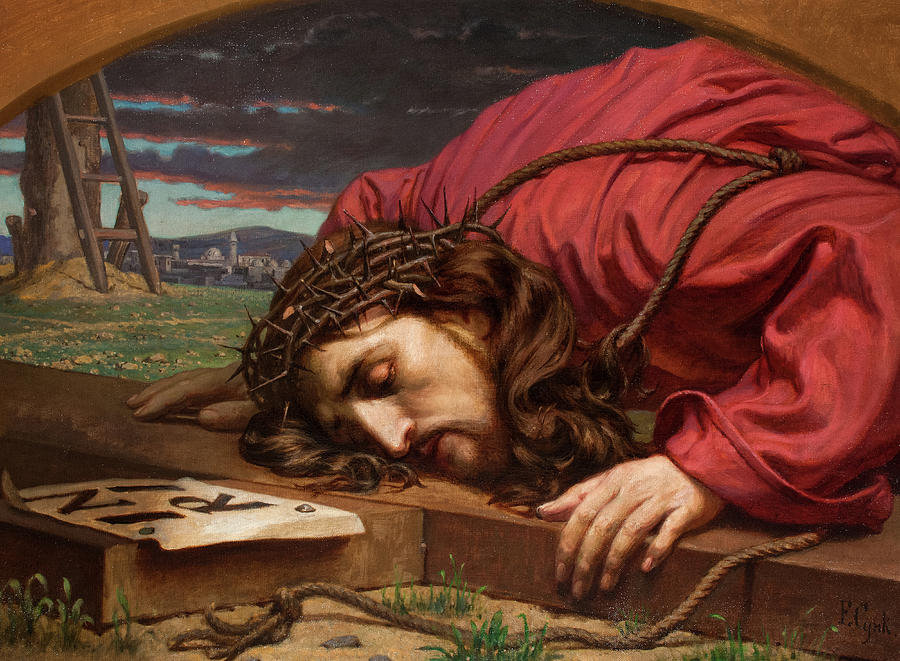I'm still meditating on 1 Corinthians 13. One of the elements that especially challenges me is, "Love does not keep a record of wrongs." It's easier to forgive than to forget. And how often past memories invade the present and tempt one to rehash a wrong, fan it into flames, and form it into a grudge as weighty as the Washington Monument.
I recently read an article in The Epoch Times, The Garden of Eden and Our Regression by James Sale. What a powerful piece! Sale begins with this:
One of the reasons why I am such an ardent student of world mythologies is that they reveal so much of our psychology today. Why? Because human nature hasn’t changed since the beginning of human time. To put it another way, we haven’t progressed.
In fact, Sale says, we've regressed. It's hard to argue that point in view of what we see every day: the victim culture, refusal to take responsibility, adult children still living with their parents, fathers and mothers killing their own children, millions escaping into addictive behavior with drugs, alcohol, and sex, etc. Sale makes the point that the problem is more than our psychology; it's spiritual.:
Ultimately, talking about this regression would extend beyond psychology and include a moral dimension: There’s been an increase in evil in our modern world.
We don’t like to use this kind of vocabulary, such as “evil,” today because it sounds absolutist and judgmental. Instead, we say things such as, “That is unacceptable.” Human regression over time, however, is something that the myths around the world talk about a lot: a descent from the Golden Age of humankind to Silver, to Bronze and, finally, to an age of Iron, when evil is rampant.
Sale points out that it all started with Adam and Eve in the Garden of Eden when they refused to take responsibility for their actions:
Adam and Eve have done wrong by disobeying God’s explicit instruction. Adam blames Eve and Eve blames the serpent. It’s not their fault!
Blame transfers accountability to another; in other words, it says I am not responsible for my action. Someone else is to blame for it. Indeed, blame may be said to be the most endemic, the most pernicious, and the most destructive of all the psychological vices that beset mankind. It is the kingpin of all that is negative within us. Small wonder, then, that it wreaks such havoc. It’s also very difficult to counter.
Blame seems to me to be the fundamental cause for keeping a record of wrongs. Pointing the finger at others can make it easy to ignore our own faults. We can just keep running down the list seeing the splinter in the other person's eye while ignoring the beam in our own.
This Advent I want to stop blaming and start thanking. I wrote several thank you letters on Thanksgiving Day and I want to do that frequently during Advent. How many graces I've received from others. I want to thank them for it. I don't want to focus on the hurtful events in my life. What good is that? Besides, when others hurt us they offer us a great opportunity to be united to the cross of Christ, and help make up what's lacking in His suffering as St. Paul says. It took me a long time to figure out what Paul meant. How could anything be lacking in the passion and suffering of Christ? The answer is simple: our cooperation in Christ's passion by our complete submission to the Divine Will by embracing our own sufferings -- not just accepting them, but kissing them like Christ kissed His cross.
 |
| Christ Kissing the Cross by Florian Stanislaw Cynk |
St. Margaret Mary Alacoque, apostle of the Sacred Heart, suffered a lot from the time she was a child. Instead of blaming those who persecuted her, she excused them, forgave them in her heart, and saw them as a means to holiness. What a great blessing if I can learn to do the same thing. It seems impossible, but Jesus promises that "My grace is sufficient for you." So I'm confident that when Christmas arrives I will find in my stocking a little more patience, a little more kindness, a little more gratitude, and a blank "record of wrongs" list.
May we all have a Blessed Advent through the intercession of Advent's queen, the Blessed Mother and Jesus, the little king of Christmas.


Love is blind but marriage is an eye opener" is a saying that means romantic love can make people overlook a partner's flaws, but the realities of marriage bring those flaws into focus. It suggests that marriage requires a deeper understanding and acceptance of a partner's imperfections.
ReplyDeleteHere are some other interpretations of the phrase:
Vocational: Marriage is a way to care for and populate the Creation.
Transformational: Marriage is a crucible that brings to the surface character flaws and defects.
Doxological: Marriage is a way to give glory to God.
There is also a book called Love is Blind, Marriage is the Eye-Opener: 10 Lessons Learned in .... The book contains lessons from the author's ten years of marriage about how to build a happy and fulfilling marriage.